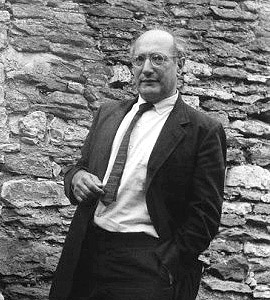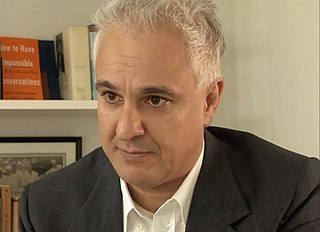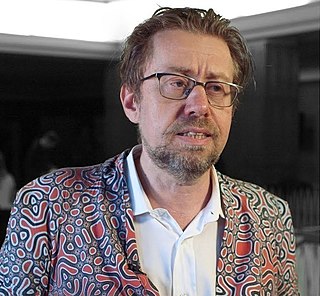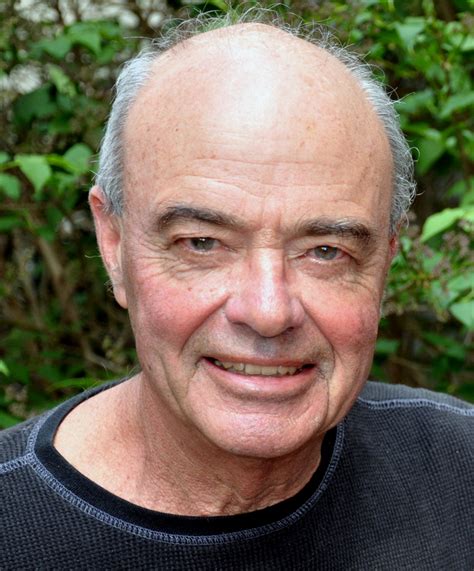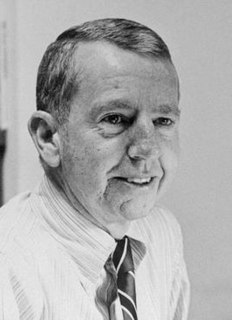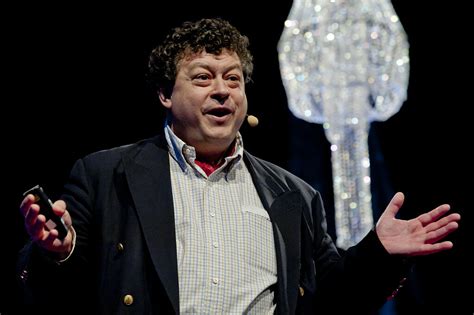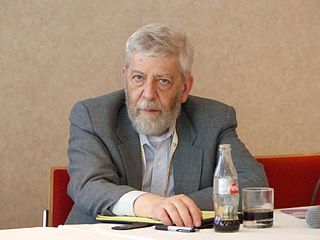Top 907 Philosopher Quotes & Sayings - Page 14
Explore popular Philosopher quotes.
Last updated on April 21, 2025.
It is the courage to make a clean breast of it in the face of every question that makes the philosopher. He must be like Sophocles' Oedipus, who, seeking enlightenment concerning his terrible fate, pursues his indefatigable inquiry even though he divines that appalling horror awaits him in the answer. But most of us carry with us the Jocasta in our hearts, who begs Oedipus, for God's sake, not to inquire further.
In many ways, the effort to study philosophy was my rebellion away from medicine. I'm the son of two Indian immigrant physicians, so the natural path for me would have been to become a doctor. I ended up doing the master's degree at Oxford in politics, philosophy, and economics while already having a seat in medical school. I was keeping that as my escape hatch. But my hope was that I might become a philosopher or something else entirely.
Was not Hypatia the greatest philosopher of Alexandria, and a true martyr to the old values of learning? She was torn to pieces by a mob of incensed Christians not because she was a woman, but because her learning was so profound, her skills at dialectic so extensive that she reduced all who queried her to embarrassed silence. They could not argue with her, so they murdered her.
I hope that people will come and experience our play 'A Small Oak Tree Runs Red' . I don't want anybody to suffer, but I source the 18th Century philosopher David Hume in association with the experience. He asserted that when we go to a tragic play, and when the form of tragedy is well put together, then we can experience a catharsis that is soul cleansing, and an anodyne to what our life would be like without it.
It is a fool only, and not the philosopher, nor even the prudent man, that will live as if there were no God... Were a man impressed as fully and strongly as he ought to be with the belief of a God, his moral life would be regulated by the force of belief; he would stand in awe of God and of himself, and would not do the thing that could not be concealed from either.
A person of your century: Great persons are of their time. Not all were born into a period worthy of them, and many so born failed to benefit by it. Some merited a better century, for all that is good does not always triumph. Fashions have their periods and even the greatest virtues, their styles. But the philosopher, being ageless, has one advantage: Should this not prove the right century, many to follow will.
Complaisance, though in itself it be scarce reckoned in the number of moral virtues, is that which gives a lustre to every talent a man can be possessed of. It was Plato's advice to an unpolished writer that he should sacrifice to the graces. In the same manner I would advise every man of learning, who would not appear in the world a mere scholar or philosopher, to make himself master of the social virtue which I have here mentioned.
I have been told, that in some public discourses of mine my reverence for the intellect has made me unjustly cold to the personalrelations. But now I almost shrink at the remembrance of such disparaging words. For persons are love's world, and the coldest philosopher cannot recount the debt of the young soul wandering here in nature to the power of love, without being tempted to unsay, as treasonable to nature, aught derogatory to the social instincts.
The Theatre of the Absurd has renounced arguing about the absurdity of the human condition; it merely presents it in being - that is, in terms of concrete stage images. This is the difference between the approach of the philosopher and that of the poet; the difference, to take an example from another sphere, between the idea of God in the works of Thomas Aquinas or Spinoza and the intuition of God in those of St. John of the Cross or Meister Eckhart - the difference between theory and experience.
I never think in terms of alienation; it's the others who do. Alienation means one thing to Hegel, another to Marx and yet another to Freud; so it is not possible to give a single definition, one that will exhaust the subject. It is a question bordering on philosophy, and I'm not a philosopher nor a sociologist. My business is to tell stories, to narrate with images - nothing else. If I do make films about alienation - to use that word that is so ambiguous - they are about characters, not about me.
...the act of eating,which hath by several wise men been considered as extremely mean and derogatory from the philosophic dignity, must be in some measure performed by the greatest prince, hero, or philosopher upon earth; nay, sometimes Nature hath been so frolicsome as to exact of these dignified characters a much more exorbitant share of this office than she hath obliged those of the lowest orders to perform.
No justification of virtue will enable a man to be virtuous. Without the aid of trained emotions the intellect is powerless against the animal organism. I had sooner play cards against a man who was quite skeptical about ethics, but bred to believe that ‘a gentleman does not cheat’, than against an irreproachable moral philosopher who had been brought up among sharpers.
When you become comfortable with uncertainty, infinite possibilities open up in your life. It means fear is no longer a dominant factor in what you do and no longer prevents you from taking action to initiate change. The Roman philosopher Tacitus rightly observed that 'the desire for safety stands against every great and noble enterprise.' If uncertainty is unacceptable to you, it turns into fear. If it is perfectly acceptable, it turns into aliveness, alertness and creativity.
All philosophers make the common mistake of taking contemporary man as their starting point and of trying, through an analysis of him, to[21] reach a conclusion. "Man" involuntarily presents himself to them as an aeterna veritas as a passive element in every hurly-burly, as a fixed standard of things. Yet everything uttered by the philosopher on the subject of man is, in the last resort, nothing more than a piece of testimony concerning man during a very limited period of time.
Question: Why are we Masters of our Fate, the captains of our souls? Because we have the power to control our thoughts, our attitudes. That is why many people live in the withering negative world. That is why many people live in the Positive Faith world. And you don't have to be a poet or a philosopher to know which is best.
In mysticism that love of truth which we saw as the beginning of all philosophy leaves the merely intellectual sphere, and takes on the assured aspect of a personal passion. Where the philosopher guesses and argues, the mystic lives and looks; and speaks, consequently, the disconcerting language of first-hand experience, not the neat dialectic of the schools. Hence whilst the Absolute of the metaphysicians remains a diagram —impersonal and unattainable—the Absolute of the mystics is lovable, attainable, alive.
It is the poet and philosopher who provide the community of objectives in which the artist participates. Their chief preoccupation, like the artist, is the expression in concrete form of their notions of reality. Like him, they deal with the verities of time and space, life and death, and the heights of exaltation as well as the depths of despair. The preoccupation with these eternal problems creates a common ground which transcends the disparity in the means used to achieve them.
Liberalism is a creation of the seventeenth century, fathered by British philosopher John Locke (1632-1704). For Locke, liberalism means limited government, the rule of law, due process, liberty, freedom of religion, freedom of speech, freedom of the press, freedom of assembly, separation of church and state, and separation of government powers into branches that oversee each other's authority.
Robert Nozick [a Havard philosopher, famous for his book "Anarchy, State and Utopia"] defined revenge as delivering the message that you know what someone has done, and it doesn't involve hurting them or doing anything to them beyond that. It's just delivering the message that their crime has been noted not just by its victims, because the victim might be dead, but by another who has a different moral view and will challenge the perpetrator's view.
I love Osho. I don't know if you would call him a philosopher; I would just call him a really cool dude. Osho really changed my life. Because the way that he spoke about emotion and the male and female energies in the world and how people react to the world around them, it's so simple, yet it has such a depth.
As a German philosopher writing in the aftermath of the Nazi regime, Marcuse understood the sleep inducing force of indoctrination, its power to make people forget and forfeit their own real interests. "The fact that the vast majority of the population accepts, and is made to accept, this society does not render it less irrational and less reprehensible," he wrote. "The distinction between true and false consciousness, real and immediate interest still is meaningful."
The adoption of the required attitude of mind towards ideas that seem to emerge "of their own free will" and the abandonment of the critical function that is normally in operation against them seem to be hard of achievement for some people. The "involuntary thoughts" are liable to release a most violent resistance, which seeks to prevent their emergence. If we may trust that great poet and philosopher Friedrich Schiller, however, poetic creation must demand an exactly similar attitude.
A strange effect of marriage, such as the nineteenth century has made it! The boredom of married life inevitably destroys love, when love has preceded marriage. And yet, as a philosopher has observed, it speedily brings about, among people who are rich enough not to have to work, an intense boredom with all quiet forms of enjoyment. And it is only dried up hearts, among women, that it does not predispose to love.
If we only look far enough off for the consequence of our actions, we can always find some point in the combination of results by which those actions can be justified: by adopting the point of view of a Providence who arranges results, or of a philosopher who traces them, we shall find it possible to obtain perfect complacency in choosing to do what is most agreeable to us in the present moment.
Recent breakthroughs in science show we have just the capacities we need to face our planet's challenges. We're "soft-wired" for cooperation, empathy, fairness, along with a deep need to "make a dent," as social philosopher Erich Fromm put it. My hunch is that one reason depression is a global pandemic is that the dominant mental map denies so many of us expression of these deep needs and capacities.
Well, I wanted to be a philosopher, which is the idlest occupation in the world. I wanted to be involved in abstract thought, but because of various problems with the authorities I wasn't able to pull that one off. A lifetime of idleness in academia would have really suited me. So I was thrown out, as it were. Other than that, there seemed no possible idle occupations, so writing . . . although writing isn't exactly idleness. There's an enormous tension between indolence and languor.
The master-economist must possess a rare combination of gifts. He must reach a high standard in several different directions and must combine talents not often found together. He must be mathematician, historian, statesman, philosopher - in some degree. He must understand symbols and speak in words. He must contemplate the particular in terms of the general, and touch abstract and concrete in the same flight of thought. He must study the present in the light ofthe past for the purposes of the future
In this land of unlimited opportunity, a place where, to paraphrase Woody Allen, any man or woman can realize greatness as a patient or as a doctor, we have only one commercial American filmmaker who consistently speaks with his own voice. That is Woody Allen, gag writer, musician, humorist, philosopher, playwright, stand-up comic, film star, film writer and film director.
Antiquity was often delighted to cast a halo of mythical glory around its illustrious names. The immortal works of this great philosopher seemed to entitle him to more than mortal honors. A legend into the authenticity of which we will abstain from inquiring, asserted that his mother, Perictione, a pure virgin, suffered an immaculate conception through the influence of Apollo. The god declared to Ariston, to whom she was about to be married, the parentage of the child.
Men may be very learned, and yet very miserable; it is easy to be a deep geometrician, or a sublime astronomer, but very difficult to be a good man. I esteem, therefore, the traveller who instructs the heart, but despise him who only indulges the imagination. A man who leaves home to mend himself and others, is a philosopher; but he who goes from country to country, guided by the blind impulse of curiosity, is only a vagabond.
An extra-terrestrial philosopher, who had watched a single youth up to the age of twenty-one and had never come across any other human being, might conclude that it is the nature of human beings to grow continually taller and wiser in an indefinite progress towards perfection; and this generalization would be just as well founded as the generalization which evolutionists base upon the previous history of this planet.
A rock or stone is not a subject that, of itself, may interest a philosopher to study; but, when he comes to see the necessity of those hard bodies, in the constitution of this earth, or for the permanency of the land on which we dwell, and when he finds that there are means wisely provided for the renovation of this necessary decaying part, as well as that of every other, he then, with pleasure, contemplates this manifestation of design, and thus connects the mineral system of this earth with that by which the heavenly bodies are made to move perpetually in their orbits.
The civilized nations--Greece, Rome, England--have been sustained by the primitive forests which anciently rotted where they stand. They survive as long as the soil is not exhausted. Alas for human culture! little is to be expected of a nation, when the vegetable mould is exhausted, and it is compelled to make manure of the bones of its fathers. There the poet sustains himself merely by his own superfluous fat, and the philosopher comes down on his marrow-bones.
A man's interest in the world is only the overflow from his interest in himself. When you are a child your vessel is not yet full;so you care for nothing but your own affairs. When you grow up, your vessel overflows; and you are a politician, a philosopher, or an explorer and adventurer. In old age the vessel dries up: there is no overflow: you are a child again.
People try so hard to believe in leaders now, pitifully hard. But we no sooner get a popular reformer or politician or soldier or writer or philosopher -- a Roosevelt, a Tolstoi, a Wood, a Shaw, a Nietzsche, than the cross-currents of criticism wash him away. My Lord, no man can stand prominence these days. It's the surest path to obscurity. People get sick of hearing the same name over and over.
Mankind occurs as male or female, as something or nothing. Woman has no share in ontological reality, no relation to the thing-in-itself, which, in the deepest interpretation, is the absolute, is God. Man in his highest form, the genius, has such a relation, and for him the absolute is either the conception of the highest worth of existence, in which case he is a philosopher; or it is the wonderful fairyland of dreams, the kingdom of absolute beauty, and then he is an artist.
I believe that even a smattering of such findings in modern science and mathematics is far more compelling and exciting than most of the doctrines of pseudoscience, whose practitioners were condemned as early as the fifth century B.C. by the Ionian philosopher Heraclitus as “nigh -walkers, magicians, priests of Bacchus, priestesses of the wine-vat, mystery-mongers.” But science is more intricate and subtle, reveals a much richer imiverse, and powerfully evokes our sense of wonder.
'In his celebrated book, 'On Liberty', the English philosopher John Stuart Mill argued that silencing an opinion is "a peculiar evil." If the opinion is right, we are robbed of the "opportunity of exchanging error for truth"; and if it's wrong, we are deprived of a deeper understanding of the truth in its "collision with error." If we know only our own side of the argument, we hardly know even that: it becomes stale, soon learned by rote, untested, a pallid and lifeless truth.'
I drifted into a career in academic philosophy because I couldn't see anything outside the academy that looked to be anything other than drudgery. But I wouldn't say I 'became a philosopher' until an early mid-life crisis forced me to confront the fact that, while 'philosophy' means 'love of wisdom', and 'wisdom' is the knowledge of how to live well, the analytic philosophy in which I had been trained seemed to have nothing to do with life.
Plato assumes somehow that government is a way in which you put unselfish and ungreedy men in charge of selfish and greedy men. But government is an institution whereby the people who have the greatest drive to get power over their fellow men, get in a position of controlling them. Look at the record of government. Where are these philosopher kings that Plato supposedly was trying to develop?
Life is just a series of peaks and troughs. And you don't know whether you're in a trough until you're climbing out, or on a peak until you're coming down. And that's it you know, you never know what's round the corner. But it's all good. "If you want the rainbow, you've gotta put up with the rain." Do you know which "philosopher" said that? Dolly Parton. And people say she's just a big pair of tits.
It is well, when the wise and the learned discover new truths; but how much better to diffuse the truths already discovered, amongst the multitude! Every addition to true knowledge is an addition to human power; and while a philosopher is discovering one new truth, millions may be propagated amongst the people. Diffusion, then, rather than discovery, is the duty of our government.
In addition to pumping the blood of life within our bodies, we may think of the heart as a belief-to-matter translator. It converts the perceptions of our experiences, beliefs, and imagination into the coded language of waves that communicate with the world beyond our bodies. Perhaps this is what philosopher and poet John Mackenzie meant when he stated, "The distinction between what is real and what is imaginary is not one that can be finely maintained ... all existing thing are ... imaginary."
For the last 250 years or so, secularists have waited patiently for the fulfilment of their prediction that religion would die out in the next generation or two. But religious people have been singularly uncooperative, and new strategies have developed for controlling this blight on human progress. If religion won't "wither away" as philosopher Richard Rorty has wished, then perhaps it can be privatized and thereby removed from influence on public life‚ - sort of like localizing an outbreak of the plague.
The philosopher ... subjects experience to his critical judgment, and this contains a value judgment namely, that freedom from toil is preferable to toil, and an intelligent life is preferable to a stupid life. It so happened that philosophy was born with these values. Scientific thought had to break this union of value judgment and analysis, for it became increasingly clear that the philosophic values did not guide the organisation of society.
Love is the only bow on Life's dark cloud. It is the Morning and the Evening Star. It shines upon the cradle of the babe, and sheds its radiance on the quiet tomb. It is the mother of Art—inspirer of poet, patriot, and philosopher. It is the air and light of every heart— builder of every home—kindler of every fire on every hearth. It was the first to dream of immortality. It fills the world with melody, for Music is the voice of Love.
All men live enveloped in whale-lines. All are born with halters round their necks; but it is only when caught in the swift, sudden turn of death, that mortals realize the silent, subtle, ever-present perils of life. And if you be a philosopher, though seated in the whale-boat, you would not at heart feel one whit more of terror, than though seated before your evening fire with a poker, and not a harpoon, by your side.
The Greek word for philosopher (philosophos) connotes a distinction from sophos. It signifies the lover of wisdom (knowledge) as distinguished from him who considers himself wise in the possession of knowledge. This meaning of the word still endures: the essence of philosophy is not the possession of the truth but the search for truth. ... Philosophy means to be on the way. Its questions are more essential than its answers, and every answer becomes a new question.
If God were to exist for the entire humanity, he would be profoundly vile, as he allows the existence of unfathomable sin, stupidity, madness, and misery for no reason than his own despicable enjoyment. God exists though, not for all humanity, but for a one chosen man - a philosopher - who is bound to answer the greatest philosophical question, the question about the nature of the questioner's existence, which progressively quenches the divine vanity.
But is all this true?" said Brutha. Didactylos shrugged. "Could be. Could be. We are here and it is now. The way I see it is, after that, everything tends towards guesswork." "You mean you don't KNOW it's true?" said Brutha. "I THINK it might be," said Didactylos. "I could be wrong. Not being certain is what being a philosopher is all about.
The world's history is a divine poem, of which the history of every nation is a canto, and every man a word. Its strains have been pealing along down the centuries, and though there have been mingled the discords of warring cannon and dying men, yet to the Christian philosopher and historian - the humble listener - there has been a Divine melody running through the song which speaks of hope and halcyon days to come.
We must not leap to the fatalistic conclusion that we are stuck with the conceptual scheme that we grew up in. We can change it, bit by bit, plank by plank, though meanwhile there is nothing to carry us along but the evolving conceptual scheme itself. The philosopher's task was well compared by Neurath to that of a mariner who must rebuild his ship on the open sea.
Dwell, O mind, within yourself; Enter no other's home. If you but seek there, you will find All you are searching for. God, the true Philosopher's Stone, Who answers every prayer, Lies hidden deep within your heart, The richest gem of all. How many pearls and precious stones Are scattered all about The outer court that lies before The chamber of your heart!
What makes the Southern Poverty Law Center particularly odious is its habit of taking legitimate conservatives and jumbling them with genuine hate groups (the Klan, Aryan Nation, skinheads, etc.), to make it appear that there's a logical relationship between say opposing affirmative action and lynching, or demands for an end to government services for illegal aliens and attacks on dark-skinned immigrants. The late novelist/philosopher Ayn Rand called this 'the broad-brush smear.'
The philosopher stands at his desk in the lecture hall, and demonstrates away the soul of man, and with exact thought measures out his atoms and resolves him back to gas and air. But the revolutionary, below in the crowd, hears, and only translates what he hears thus to his brethren: 'Let us drink while we may; property is robbery; this life is all; let us kill and eat; there is no God.
A philosopher is a lover of wisdom, not of knowledge, which for all its great uses ultimately suffers from the crippling effect of ephemerality. All knowledge is transient, linked to the world around it and subject to change as the world changes, whereas wisdom, true wisdom is eternal, immutable. To be philosophical one must love wisdom for its own sake, accept its permanent validity and yet its perpetual irrelevance. It is the fate of the wise to understand the process of history and yet never to shape it.
















